Immanuel Kant's "Critique of Practical Reason" serves as a foundational text in moral philosophy, elucidating his pivotal concepts of duty, moral law, and autonomy. Written in a rigorous and systematic style, this work extends the exploration initiated in his earlier "Critique of Pure Reason," bridging theoretical understanding with practical application. Kant articulates the necessity of a universal moral law grounded in reason, arguing for a categorical imperative that compels individuals to act according to maxims that could be legislated as universal law. Through meticulous analysis and dense argumentation, Kant's literary form reflects Enlightenment ideals, fostering a discourse that elevates rationality as the essence of ethical principles. Immanuel Kant, a luminary of the Enlightenment, constructed his moral philosophy during a period rife with metaphysical speculation and burgeoning empirical science. His academic journey at the University of Königsberg was marked by intellectual rigor and an unwavering commitment to reason, which propelled him to question the nature of human freedom and moral accountability. The "Critique of Practical Reason" not only builds upon his critical philosophy but also resonates with his life experiences in a rapidly changing world, where the quest for moral certainty became increasingly vital. I highly recommend "Critique of Practical Reason" to readers seeking a profound engagement with ethical reasoning and the role of human agency. Kant's work challenges us to reconsider our moral responsibilities within the frameworks of rationality and autonomy, making it essential for students of philosophy and anyone invested in understanding the principles underpinning human behavior. His arguments continue to influence contemporary debates in ethics, reinforcing the timelessness of his insights and their applicability to modern moral dilemmas.
Critique of Practical Reason (Kritik der praktischen Vernunft)
À propos de ce livre
Immanuel Kant's "Critique of Practical Reason" serves as a foundational text in moral philosophy, elucidating his pivotal concepts of duty, moral law, and autonomy. Written in a rigorous and systematic style, this work extends the exploration initiated in his earlier "Critique of Pure Reason," bridging theoretical understanding with practical application. Kant articulates the necessity of a universal moral law grounded in reason, arguing for a categorical imperative that compels individuals to act according to maxims that could be legislated as universal law. Through meticulous analysis and dense argumentation, Kant's literary form reflects Enlightenment ideals, fostering a discourse that elevates rationality as the essence of ethical principles. Immanuel Kant, a luminary of the Enlightenment, constructed his moral philosophy during a period rife with metaphysical speculation and burgeoning empirical science. His academic journey at the University of Königsberg was marked by intellectual rigor and an unwavering commitment to reason, which propelled him to question the nature of human freedom and moral accountability. The "Critique of Practical Reason" not only builds upon his critical philosophy but also resonates with his life experiences in a rapidly changing world, where the quest for moral certainty became increasingly vital. I highly recommend "Critique of Practical Reason" to readers seeking a profound engagement with ethical reasoning and the role of human agency. Kant's work challenges us to reconsider our moral responsibilities within the frameworks of rationality and autonomy, making it essential for students of philosophy and anyone invested in understanding the principles underpinning human behavior. His arguments continue to influence contemporary debates in ethics, reinforcing the timelessness of his insights and their applicability to modern moral dilemmas.
Commencez ce livre dès aujourd’hui pour 0 €
- Accédez à tous les livres de l'app pendant la période d'essai
- Sans engagement, annulez à tout moment
Auteur(e) :
Langue :
anglais
Format :

101 Libros Imprescindibles Para Leer En Tu Vida : Edición enriquecida. Explorando la vastedad literaria a través de 101 obras imprescindibles
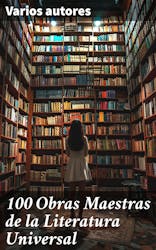
100 Obras Maestras de la Literatura Universal : Edición enriquecida. Explorando la diversidad literaria a lo largo de los siglos
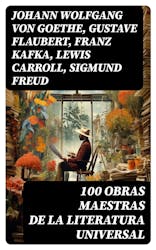
100 Obras Maestras de la Literatura Universal : Edición enriquecida.
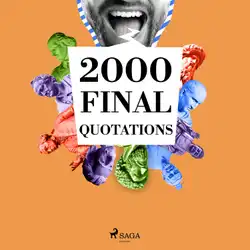
2000 Final Quotations
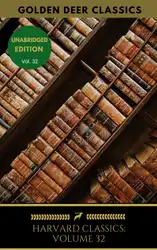
Harvard Classics Volume 32 : Literary And Philosophical Essays

Teoría y praxis : Estudio preliminar: Eduardo García Belsunce
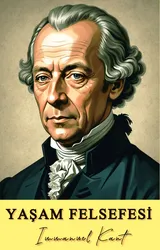
Yaşam Felsefesi
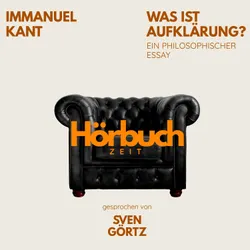
Was ist Aufklärung? Ein philosophischer Essay. : Hörbuchzeit: Klassiker der Weltliteratur
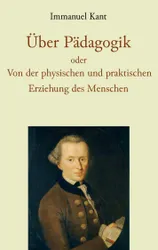
Über Pädagogik oder Von der physischen und praktischen Erziehung des Menschen

La Paz Perpetua :
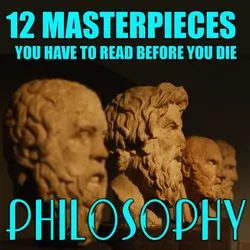
12 Masterpieces You Have to Read Before You Die. Philosophy

Crítica de la Razón Pura
